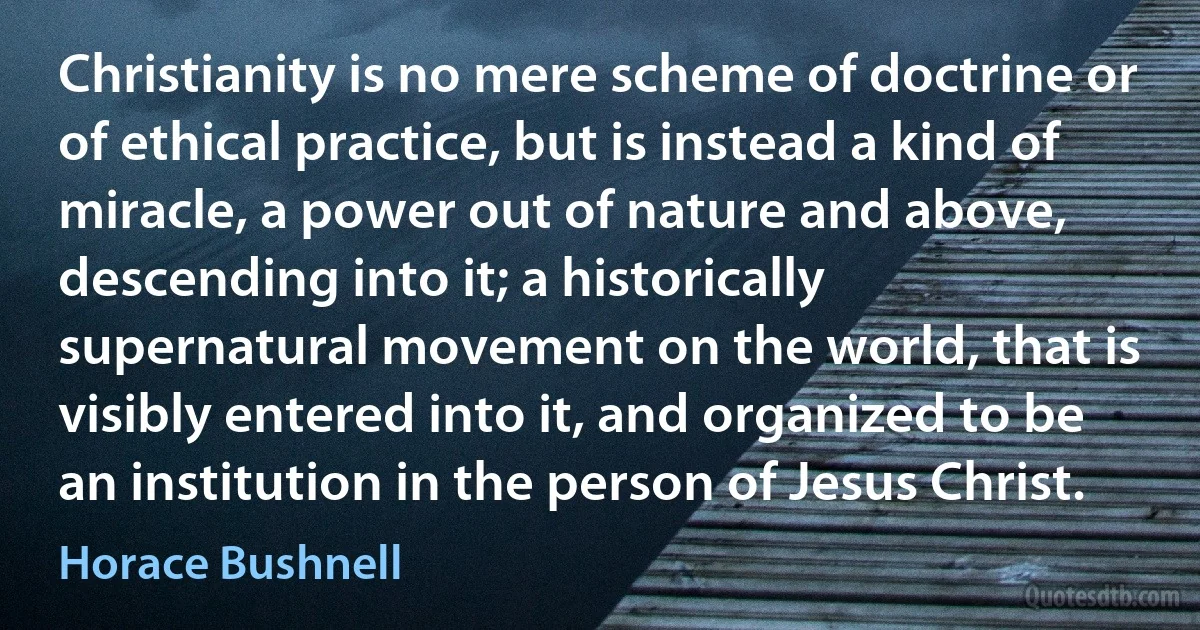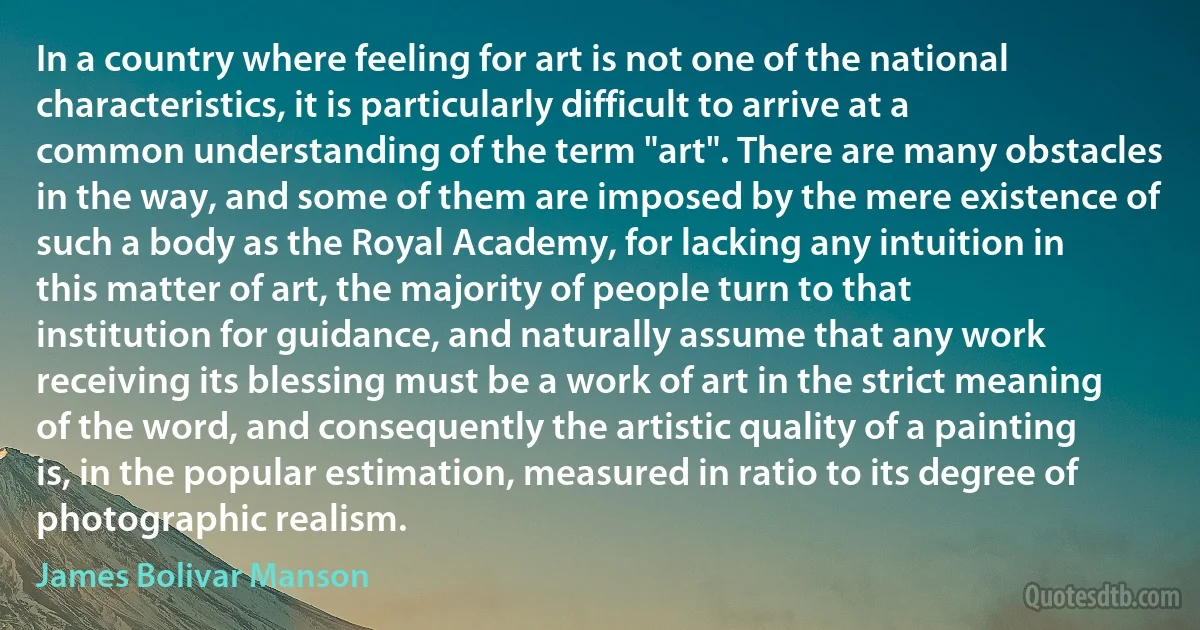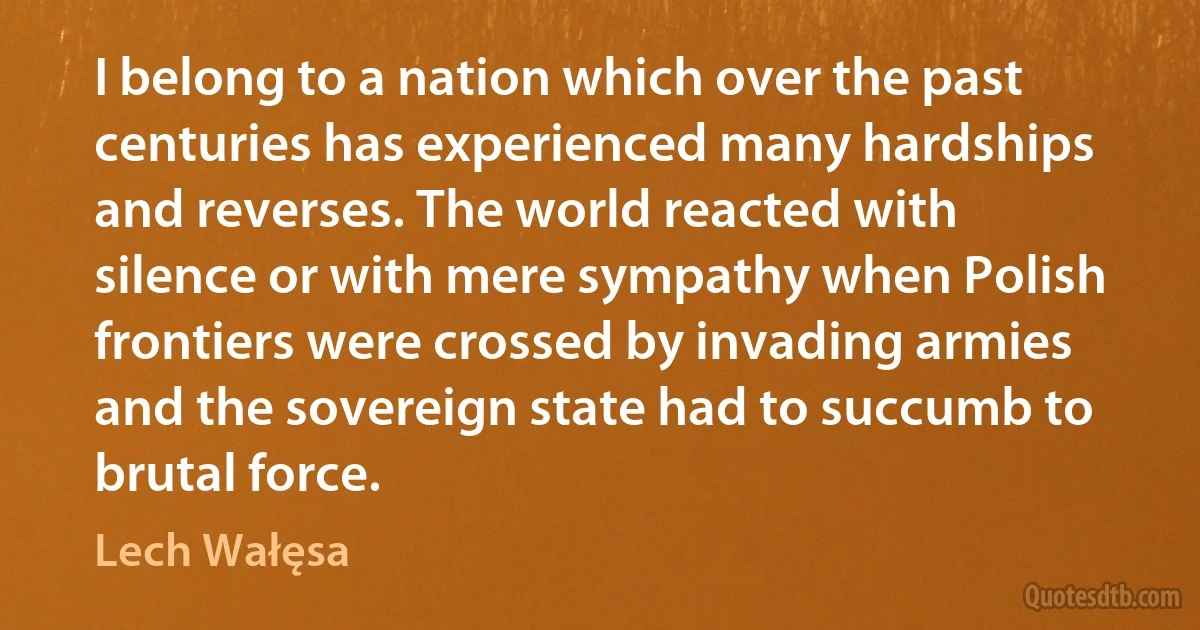Mere Quotes - page 27
And the clergy said, 'Certainly, you're quite right; the disease is awful. Therefore, the only way is to let it alone. Amen. A contribution will now be taken up to extend Gospel privileges to the Philippine Islands'. The abolitionists retorted by declaring that you might as well let fire alone, by telling the free States that they were bound to thrust back fugitives, and were, therefore, themselves the mere bloodhounds and slaves of slavery, which could only live by expansion, and only wanted to be let alone to become impregnable.

George William Curtis
To me it is quite credible that the Martians may be descended from beings not unlike ourselves, by a gradual development of brain and hands (the latter giving rise to the two bunches of delicate tentacles at last) at the expense of the rest of the body. Without the body the brain would, of course, become a mere selfish intelligence, without any of the emotional substratum of the human being.

H. G. Wells
Nothing endures, nothing is precise and certain (except the mind of a pedant), perfection is the mere repudiation of that ineluctable marginal inexactitude which is the mysterious inmost quality of Being. Being, indeed! – there is no being, but a universal becoming of individualities, and Plato turned his back os truth when he turned towards his museum of specific ideals.

H. G. Wells
It seemed to me that all over the world intelligent people were waking up to the indignity and absurdity of being endangered, restrained, and impoverished, by a mere uncritical adhesion to traditional governments, traditional ideas of economic life, and traditional forms of behaviour, and that these awaking intelligent people must constitute first a protest and then a creative resistance to the inertia that was stifling and threatening us. These people I imagined would say first, "We are drifting; we are doing nothing worth while with our lives. Our lives are dull and stupid and not good enough."

H. G. Wells
Now, so far as we may ascribe any great historic result to a single cause, it is the cotton-gin which has thwarted the Constitution and defeated the expectation of our fathers. The cotton-gin - which in seven years saw a crop twenty times as large as before; the cotton-gin, which enabled a man to pick a thousand pounds of cotton in a day instead of one pound - has seemed also to pick the moral perceptions out of the minds of a great many sober and kindly people; to pick all the intention, the spirit, the humanity, the meaning, the very soul, out of the Constitution of the United States, making it not the charter of equal freedom to all who are subject to it, but a mere commercial band by which a part of the population are compelled, directly or indirectly, to hold another part in slavery.

George William Curtis
Our minds fall very readily under the spell of such unmitigated words as Purity and Chastity. Only death beyond decay, absolute non-existence, can be Pure and Chaste. Life is impurity, fact is impure. Everything has traces of alien matter; our very health is dependent on parasitic bacteria; the purest blood in the world has a tainted ancestor, and not a saint but has evil thoughts.... This stupidity, this unreasonable idealism of the common mind, fills life to-day with cruelties and exclusions, with partial suicides and secret shames. But we are born impure, we die impure; it is a fable that spotless white lilies sprang from any saint's decay, and the chastity of a monk or nun is but introverted impurity. We have to take life valiantly on these conditions and make such honour and beauty and sympathy out of our confusions, gather such constructive experience, as we may.... Life is that, and abstinence is for the most part a mere evasion of life.

H. G. Wells
So last January, with the beginning of a snowstorm in the air about me-and if it settled on me it would betray me!-weary, cold, painful, inexpressibly wretched, and still but half convinced of my invisible quality, I began this new life to which I am committed. I had no refuge, no appliances, no human being in the world in whom I could confide. To have told my secret would have given me away-made a mere show and rarity of me. Nevertheless, I was half-minded to accost some passer-by and throw myself upon his mercy. But I knew too clearly the terror and brutal cruelty my advances would evoke. I made no plans in the street. My sole object was to get shelter from the snow, to get myself covered and warm; then I might hope to plan. But even to me, an Invisible Man, the rows of London houses stood latched, barred, and bolted impregnably.

H. G. Wells
Hitherto he has found in Western music, in Bach above all, everything he needs. Now he encounters something that is not in Bach, though there are intimations of it: a joyous yielding of the reasoning, comprehending mind to the dance of the fingers. He hunts through record shops, and in one of them finds an LP of a sitar player named Ustad Vilayat Khan, with his brother - a younger brother, to judge from the picture - on a veena, and an unnamed tabla player. He does not have a gramophone of this own, but he is able to listen to the first ten minutes in the shop. It is all there: the hovering exploration of tone-sequences, the quivering emotion, the ecstatic rushes. He cannot believe his good fortune. A new continent and all for a mere nine shillings! He takes the record back to his room, packs it away between sleeves of cardboard till the day he will able to listen to it again.

J. M. Coetzee
Civilization, in fact, grows more and more maudlin and hysterical; especially under democracy it tends to degenerate into a mere combat of crazes; the whole aim of practical politics is to keep the populace alarmed (and hence clamorous to be led to safety) by menacing it with an endless series of hobgoblins, most of them imaginary.

H. L. Mencken
Though the theology of Christianity had thus sunk to the lowly estate of a mere delusion of the rabble, propagated on that level by the ancient caste of sacerdotal parasites, the ethics of Christianity continued to enjoy the utmost acceptance, and perhaps even more acceptance than ever before. It seemed to be generally felt, in fact, that they simply must be saved from the wreck-that the world would vanish into chaos if they went the way of the revelations supporting them. In this fear a great many judicious men joined, and so there arose what was, in essence, an absolutely new Christian cult-a cult, to wit, purged of all the supernaturalism superimposed upon the older cult by generations of theologians, and harking back to what was conceived to be the pure ethical doctrine of Jesus.

H. L. Mencken
But a punishment like forced labour or even imprisonment – mere loss of liberty – has never functioned without a certain additional element of punishment that certainly concerns the body itself: rationing of food, sexual deprivation, corporal punishment, solitary confinement ... There remains, therefore, a trace of ‘torture' in the modern mechanisms of criminal justice – a trace that has not been entirely overcome, but which is enveloped, increasingly, by the non-corporal nature of the penal system.

Michel Foucault
Uninformed strong opinions - and I particularly include religious ones, which for some reason get special treatment - are of course mere clusters of prejudices and no more appropriate than mine, yours or anyone else's are on topics we don't understand - as worthless as my opinions on hockey, Noel Edmonds or rimming.

Derren Brown



